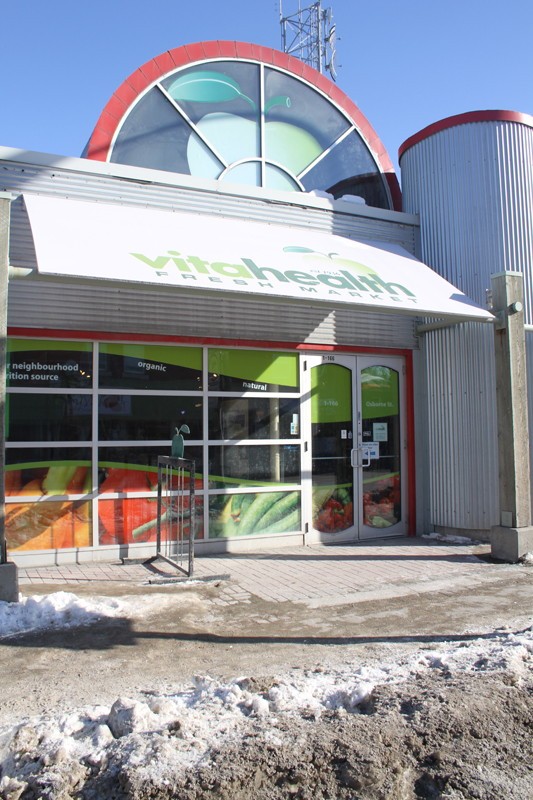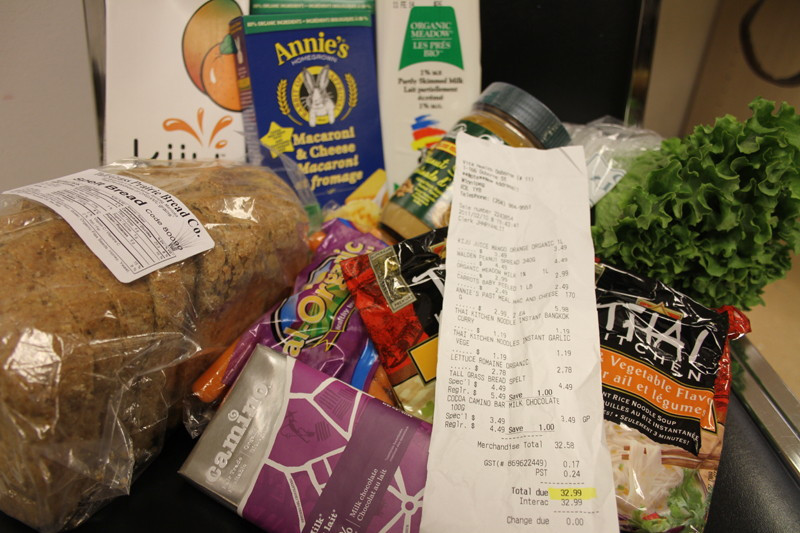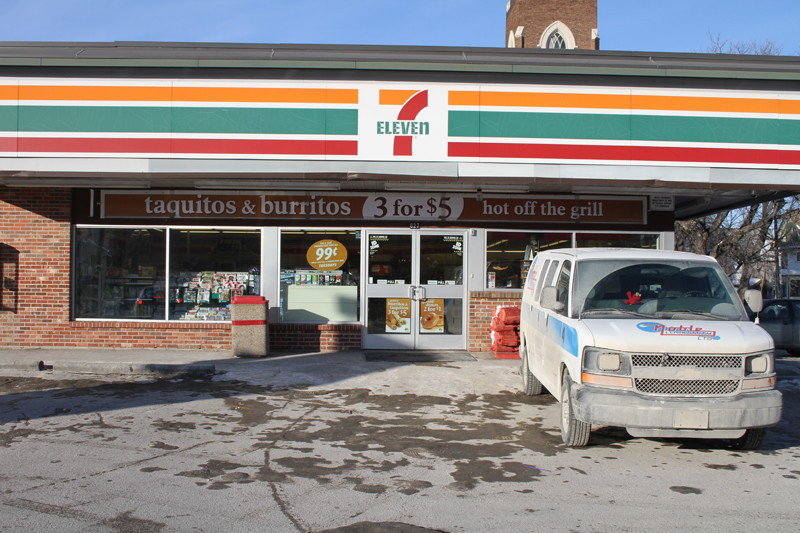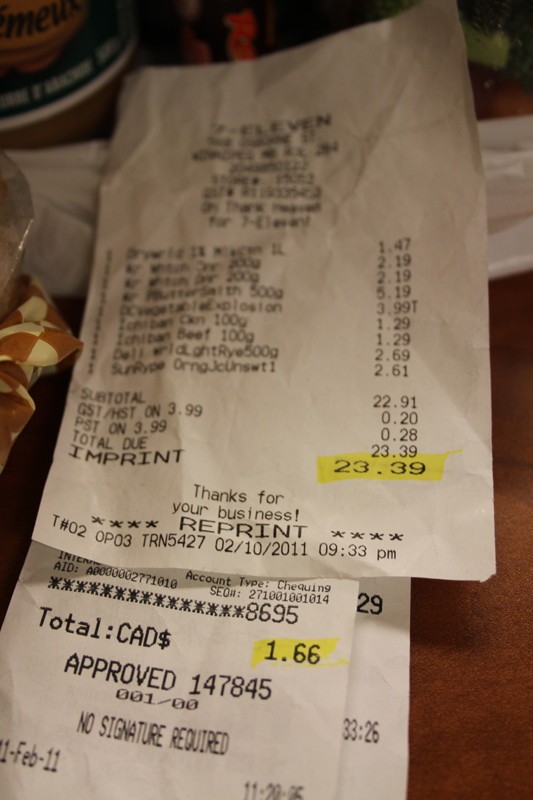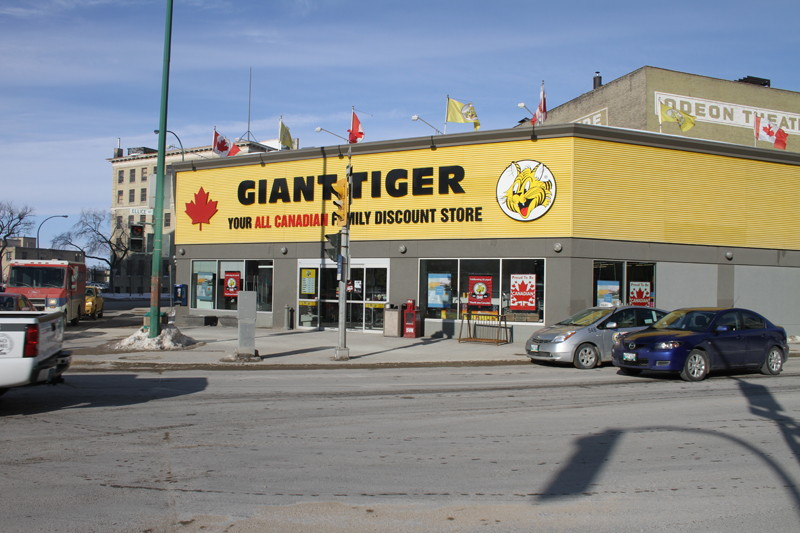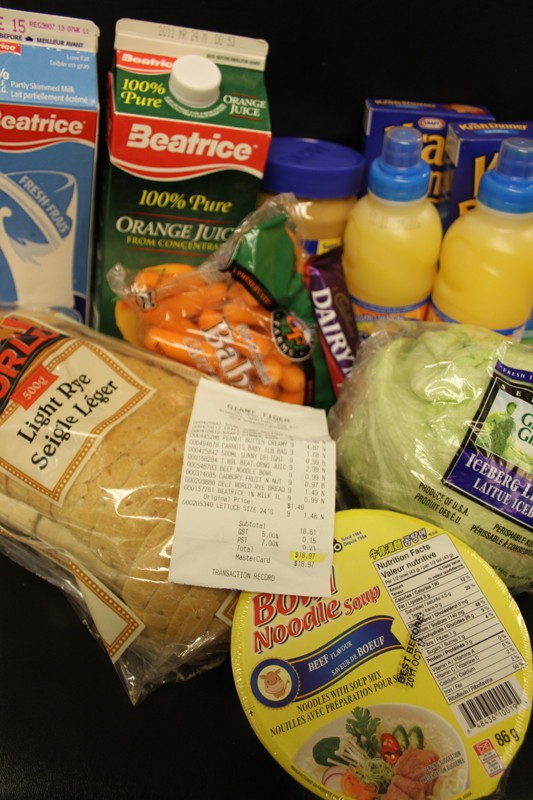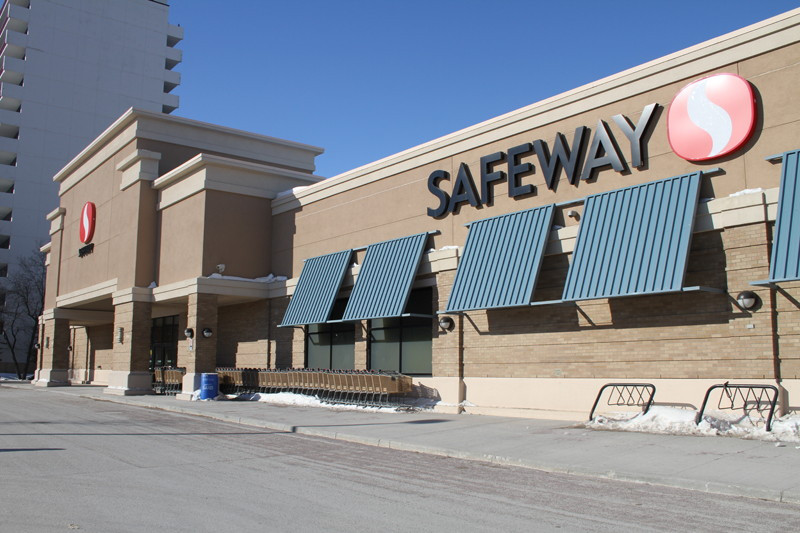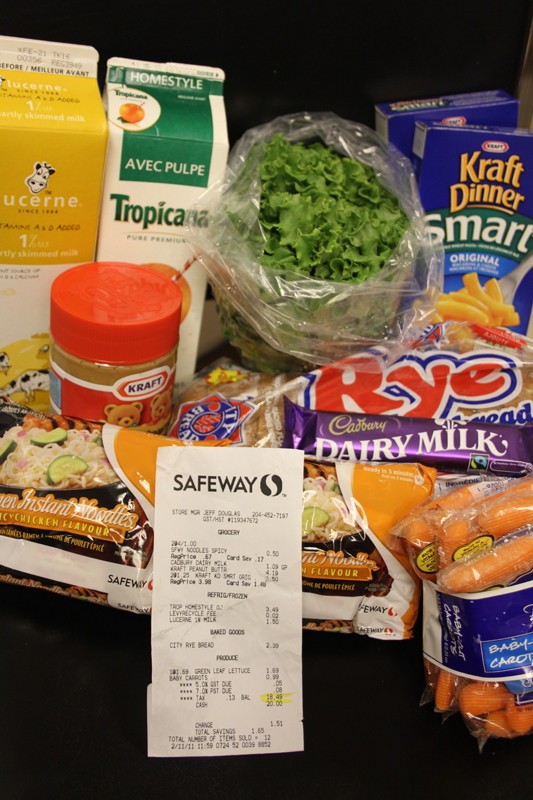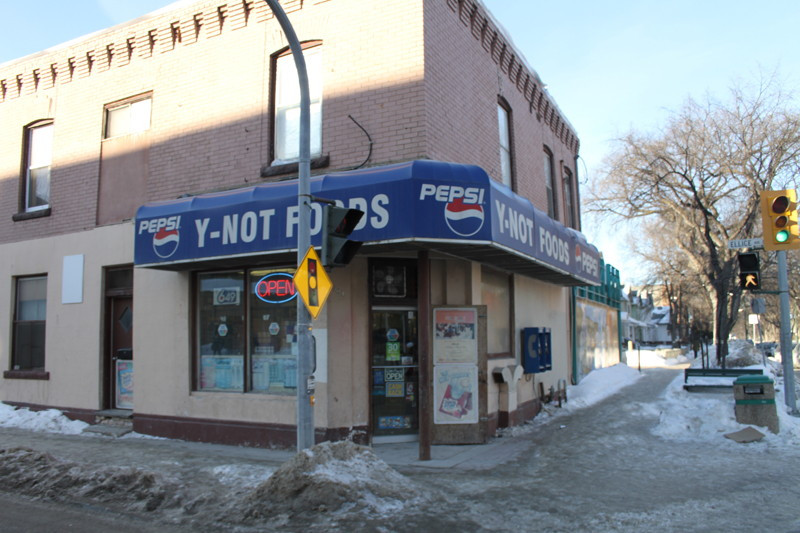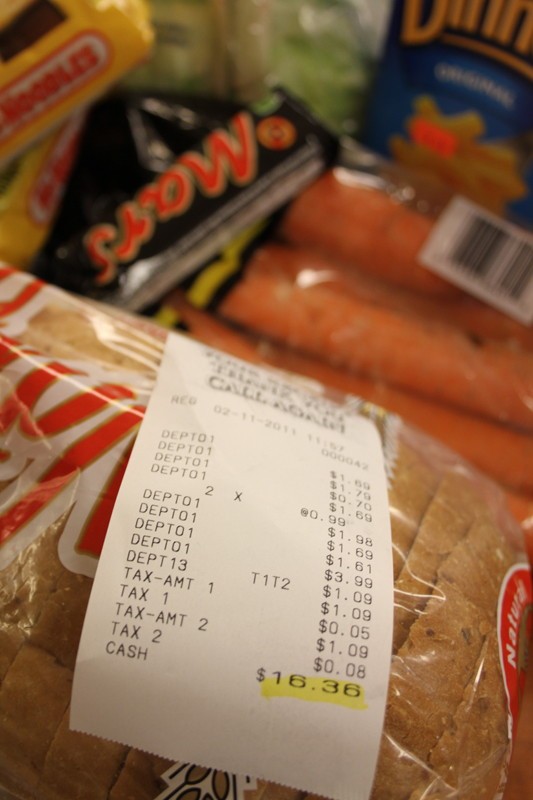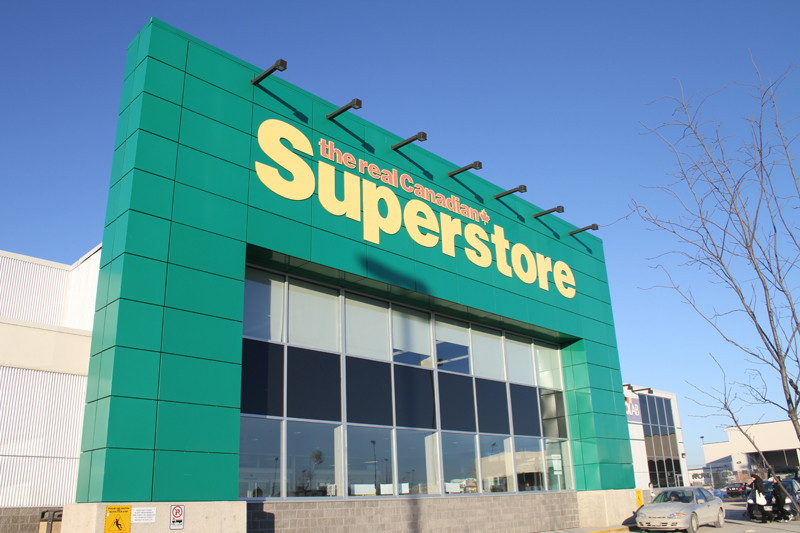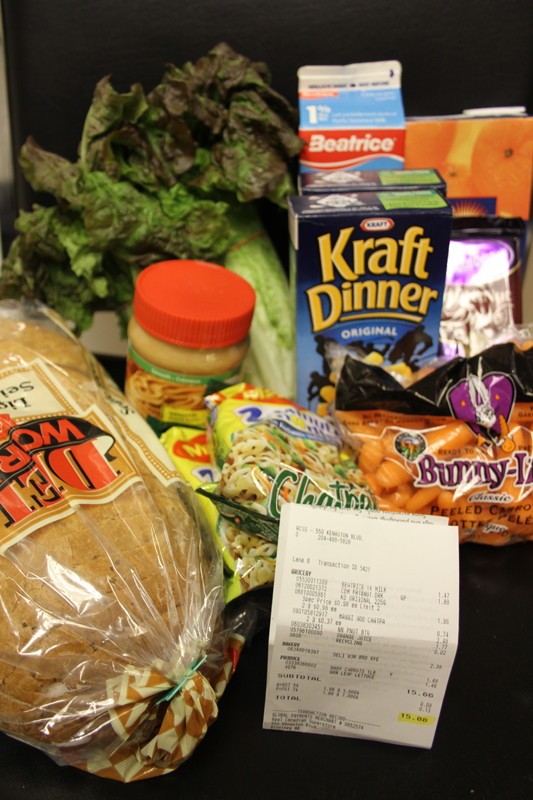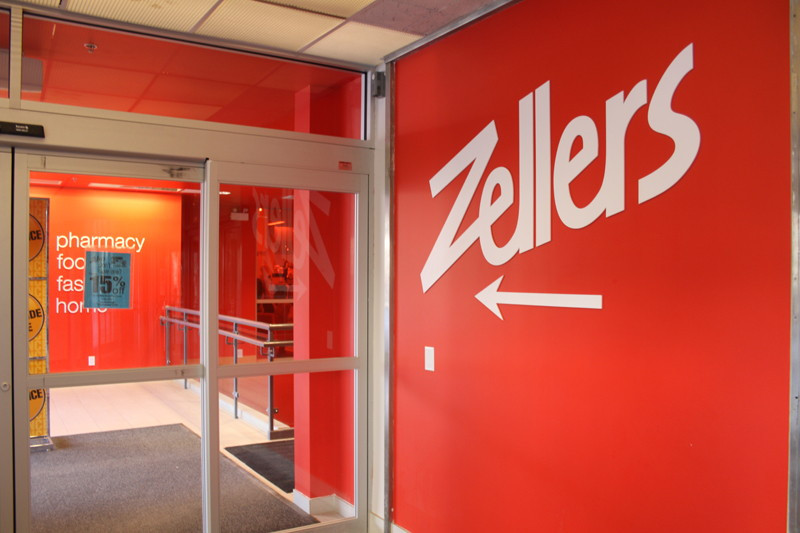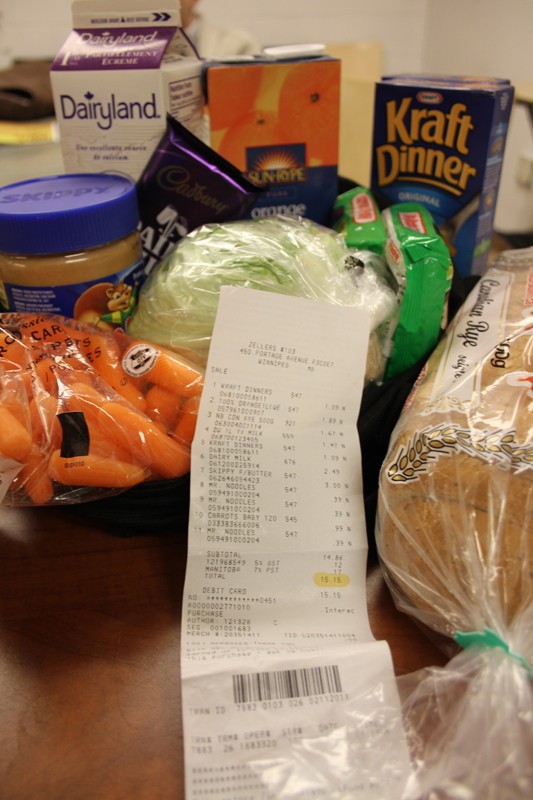Where do you go for your groceries?
Students in search of nearby grocery stores that are cheap and good
We’ve all been there - you need to pick up some grocery essentials but are too tired or busy to go further than your corner store to get them. You pay and realize that you’re probably paying too much, but you just don’t care at that moment.
Buying groceries is a balancing act. You have to stay within budget, not take too much time and actually get decent food. It may be a matter of how much you consider your time to be worth. Are you willing to pay a few extra bucks to save a few extra steps?
For students at the University of Winnipeg, there are many places downtown to buy groceries. The Uniter visited seven of the most popular/close to campus stores and compared the prices of what we considered to be representative for students - milk, orange juice, bread, Kraft Dinner, instant noodles, baby carrots, peanut butter and a chocolate bar.
Instead of comparing brands, we stuck with consistent portions. One litre of milk, two packs of noodles, one loaf of rye bread. Some variations occurred with the chocolate bars and vegetables, so consider this a loose guide.
Some interesting points came up.
First off, 7-Eleven does not carry any fresh vegetables, save for the “Vegetable Explosion” cup. This was a small mixture of veggies with a hearty dose of Ranch dressing to go with it. A medium size jar of Skippy peanut butter from Zellers cost $3.00, whereas a small jar of Skippy from Giant Tiger cost $4.67. A small jar of organic peanut butter from Vita Health cost $4.49.
Most won’t be surprised that health food specialty store Vita Health was the most expensive.
Organic foods are rarely available as cheap as non-organic. As a consumer, the question you have to ask is: what does “organic” mean? Also, organic food often comes from out of the province or country, so you have to weigh the benefits against the carbon impact of how far the food travels.
The lowdown
From the price, selection and proximity to the university, it looks like Zellers is your best bet.
Superstore has good prices and a wide selection, but requires at least a bus ride to get there. If you’re hungry and in a hurry, Y-Not Foods won’t break the bank, but their selection is low.
You’ll pay a bit more for Safeway, but with the member discounts, its central location and selection, it’s not a bad place to do your major weekend shopping. Giant Tiger has the staples, but it’s more expensive with a smaller selection. 7-Eleven is prohibitively expensive with a poor selection.
Lastly, Vita Health might fulfill your organic food dreams, but that may not be realistic for a money-conscious student.
Read the labels, shop around and compare prices and quality. You can save a lot of money by making one trip buying bulk versus going to the corner store several times a week. Every little bit helps.
With files from Ethan Cabel, Britt Embry, Chris Hunter, Justin Luschinski, Karlene Ooto-Stubbs and Lauren Parsons.
Published in Volume 65, Number 20 of The Uniter (February 24, 2011)

